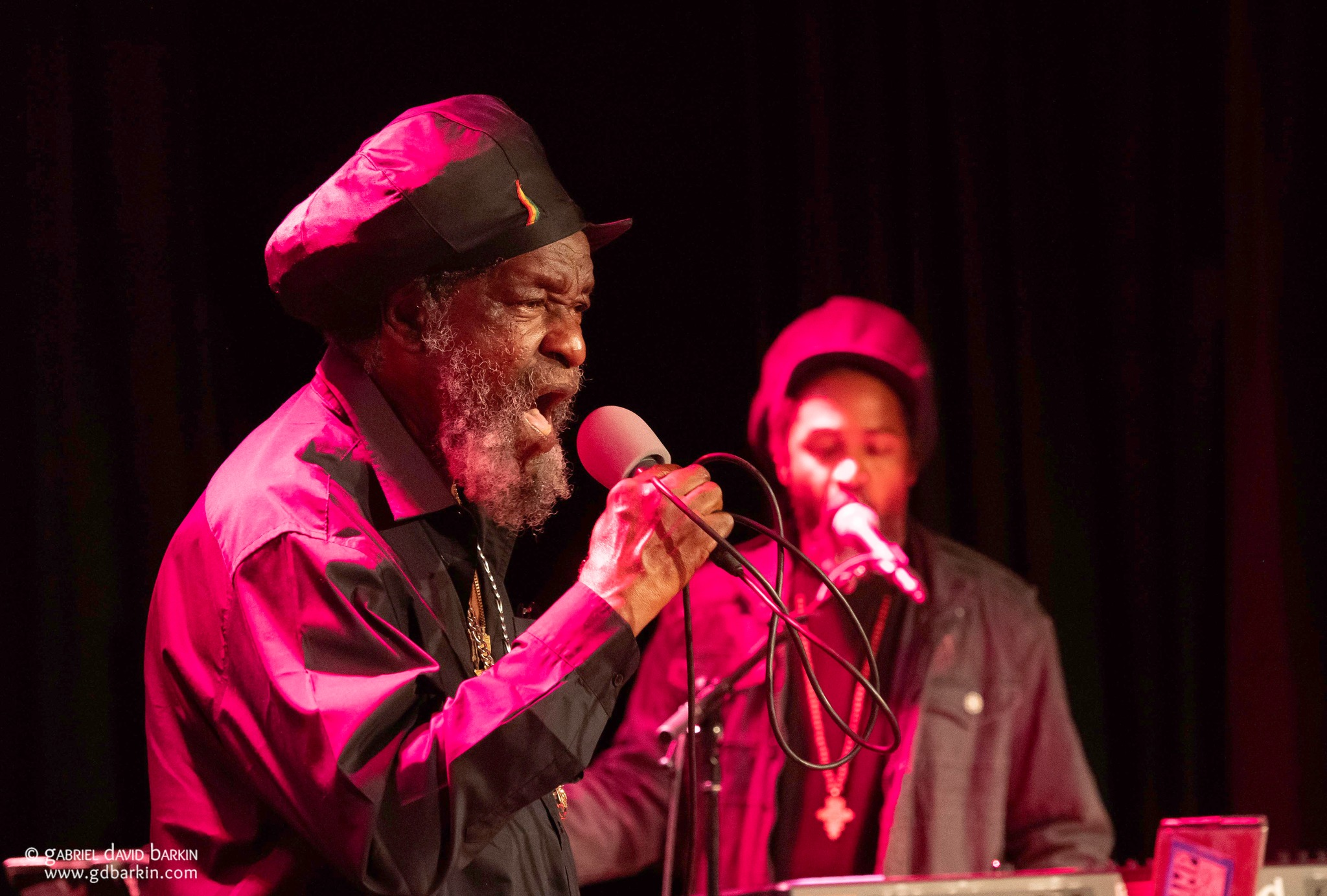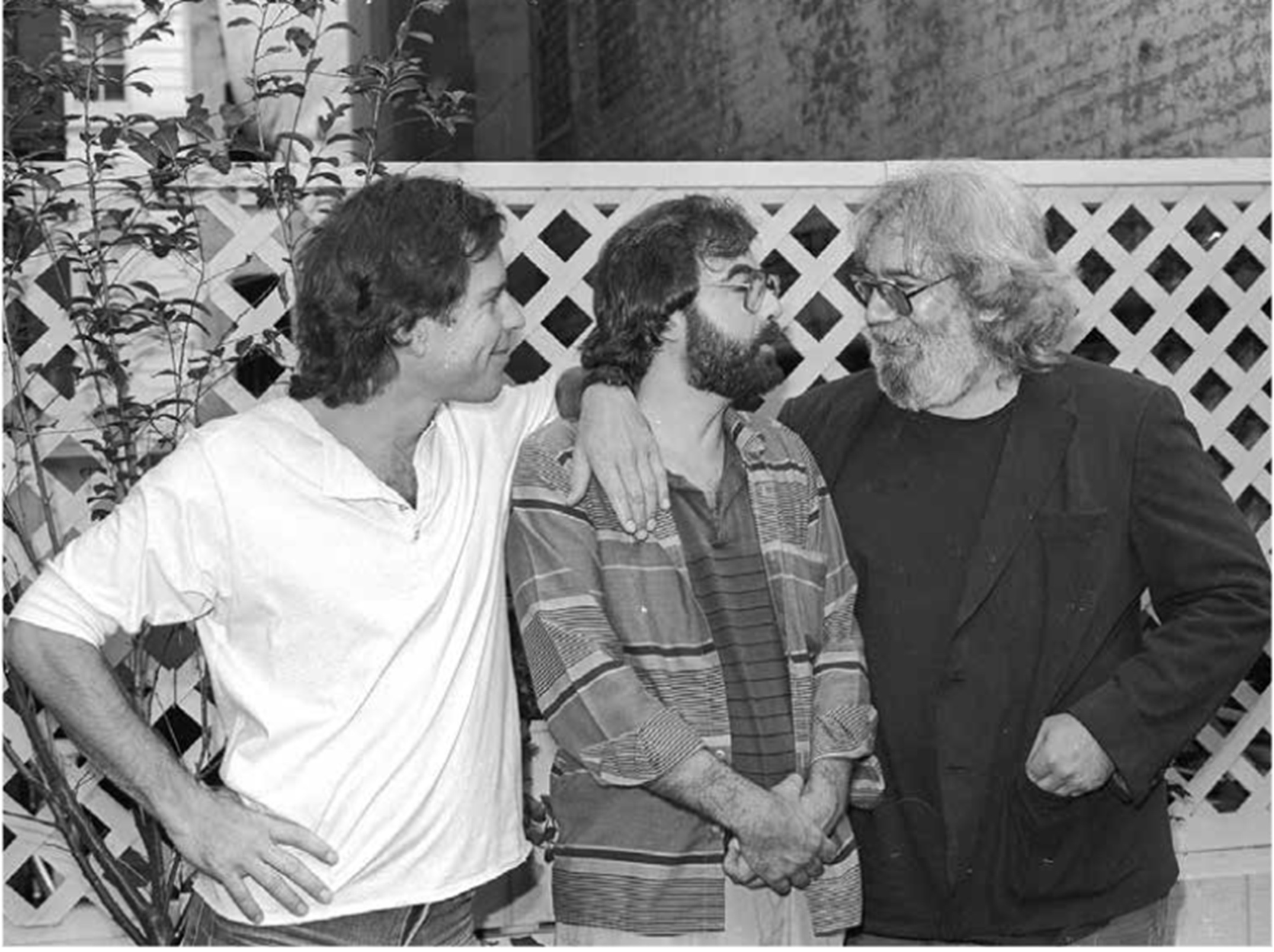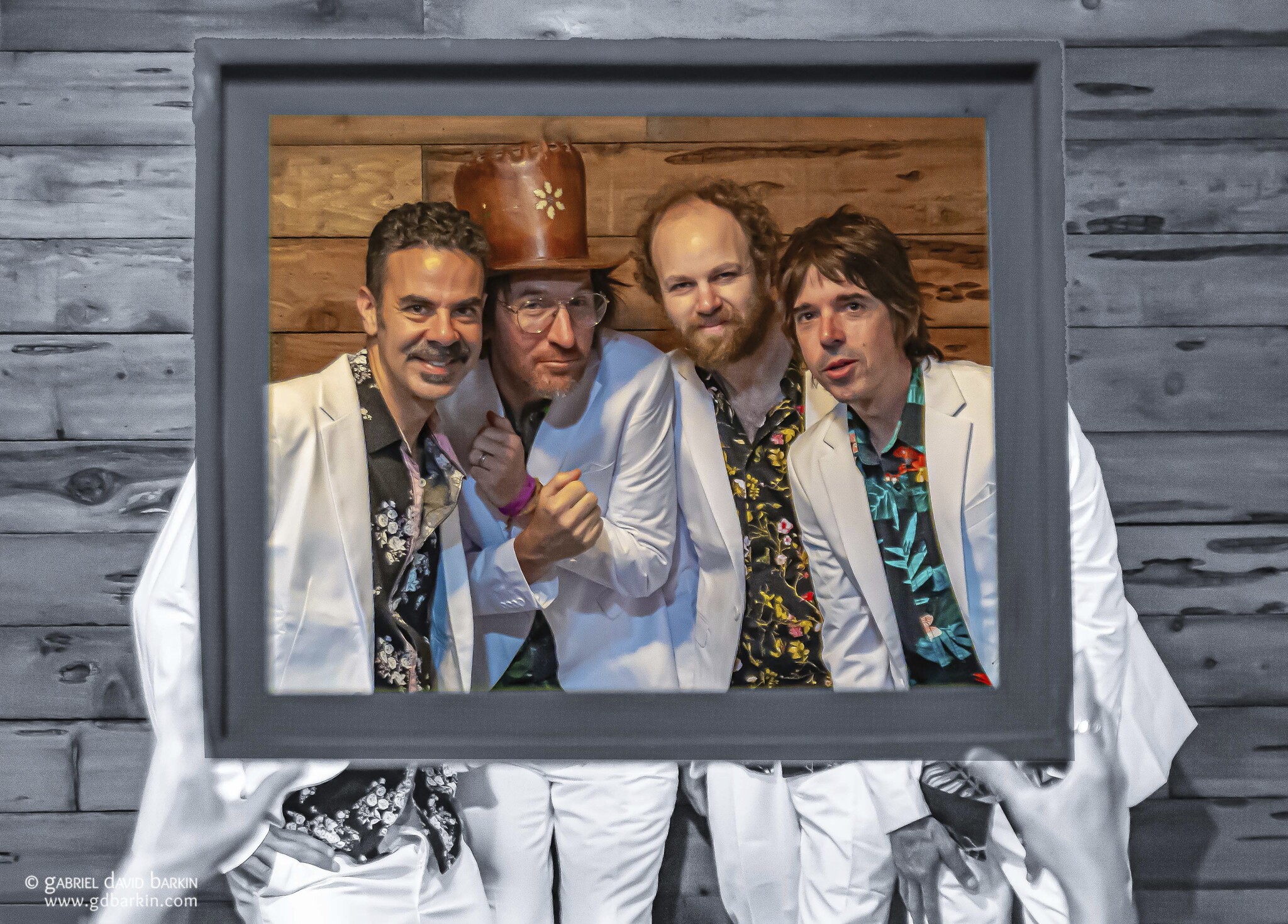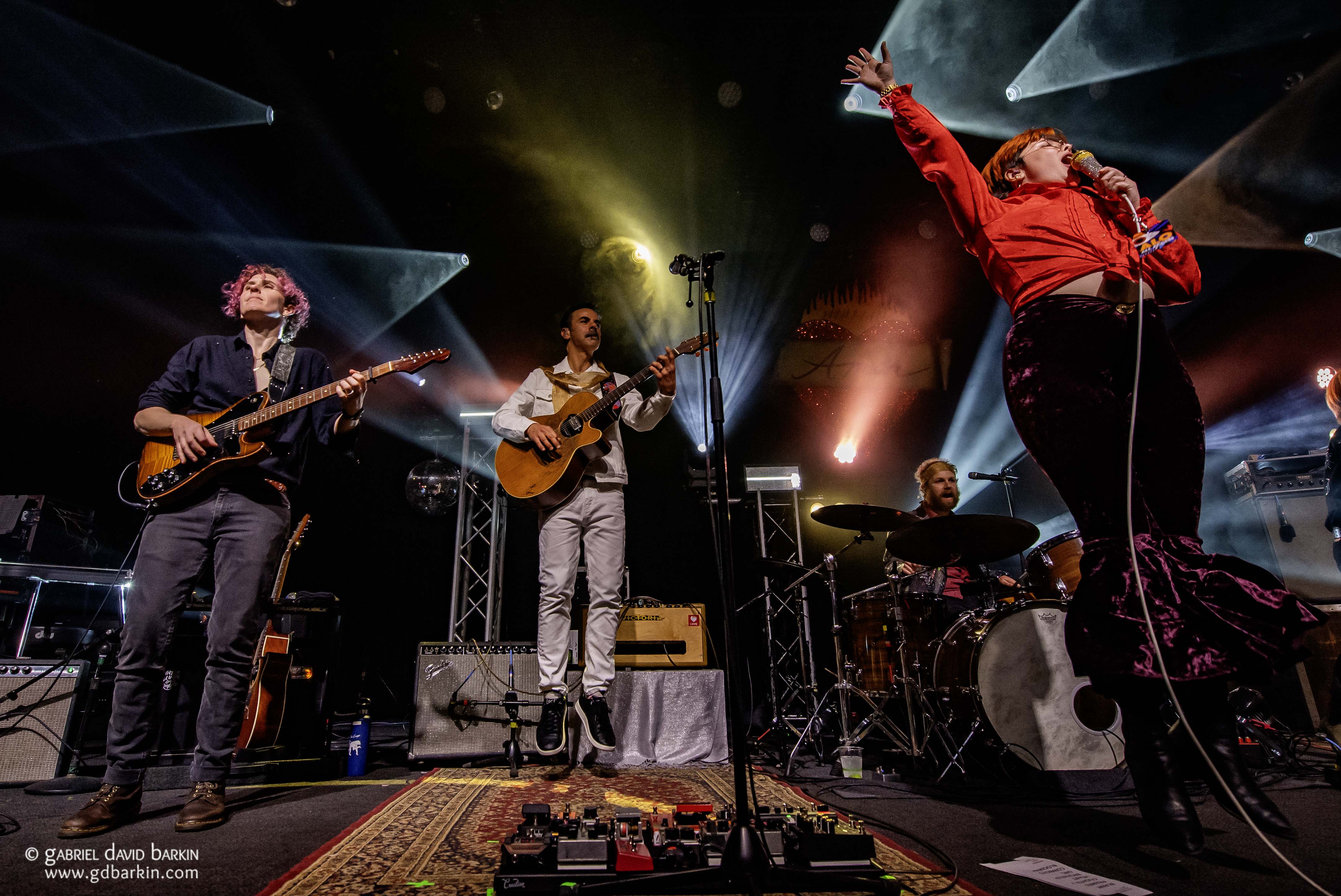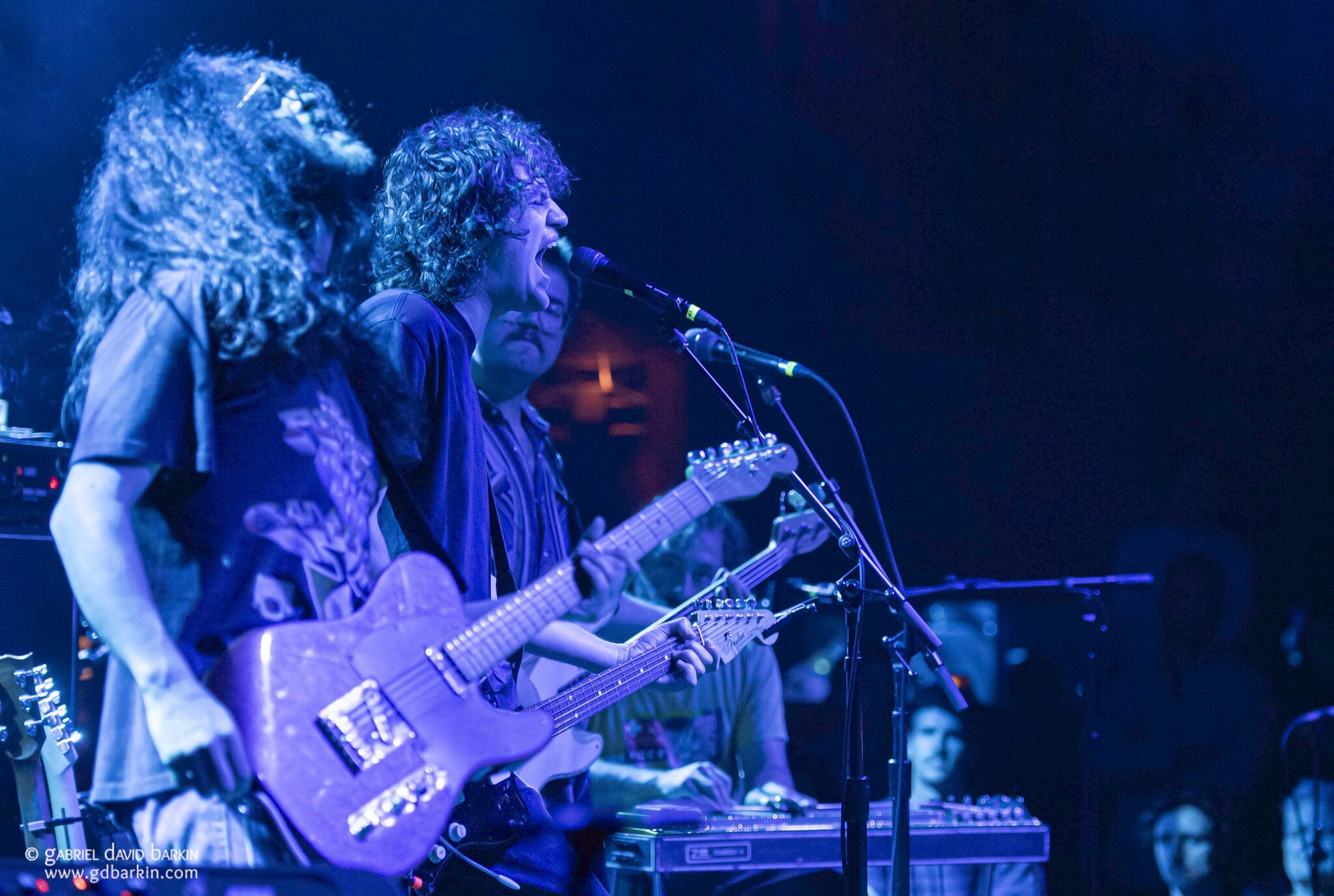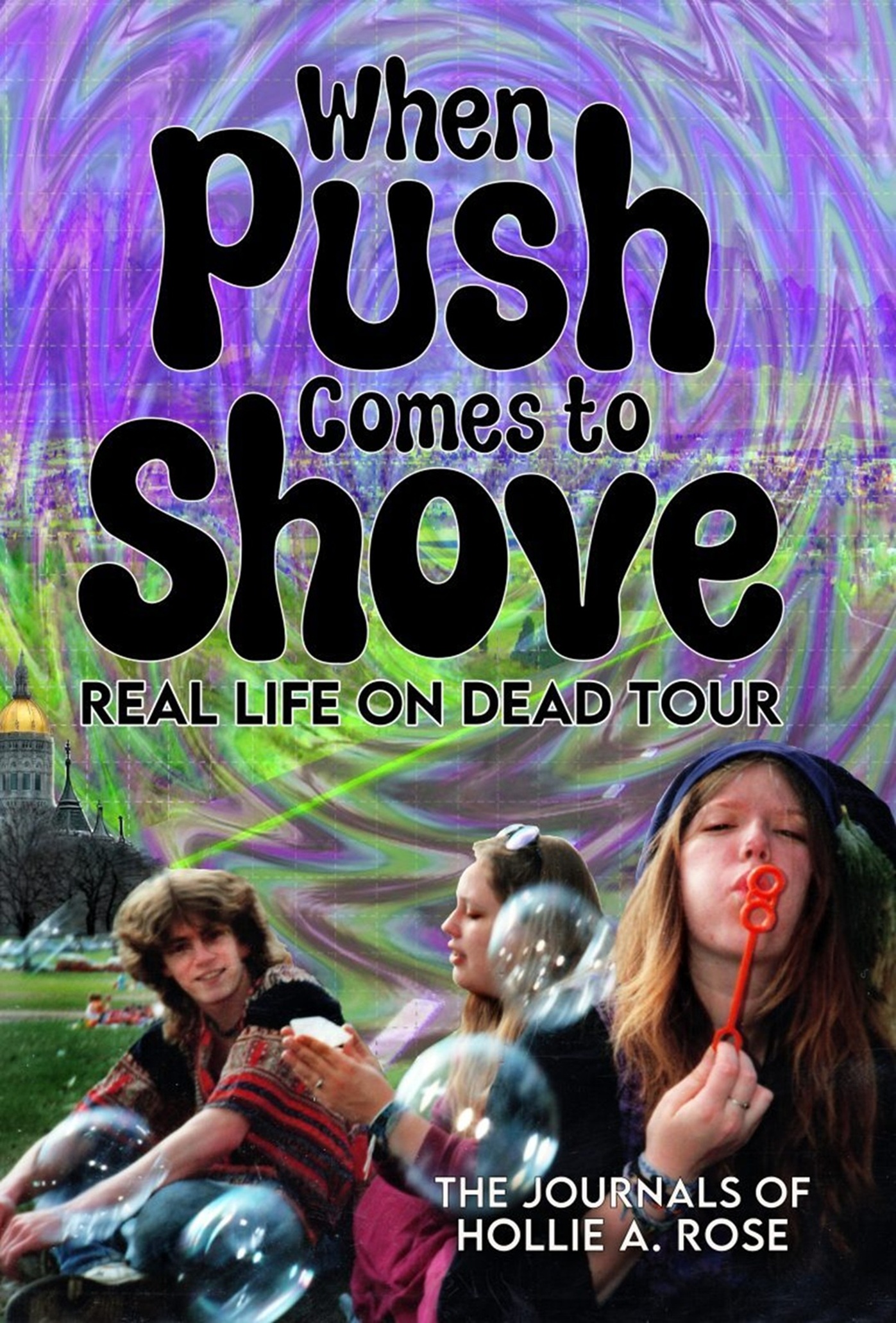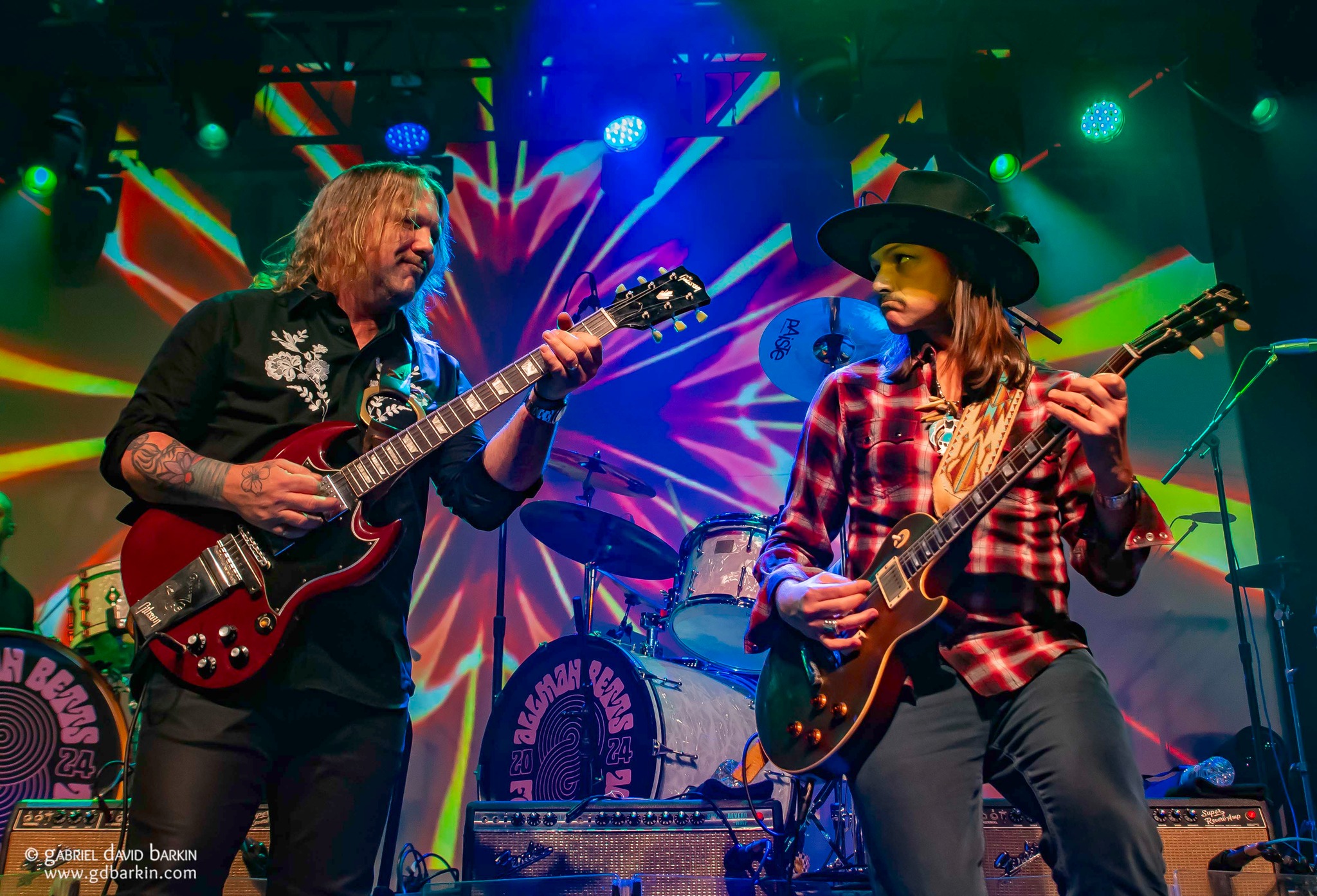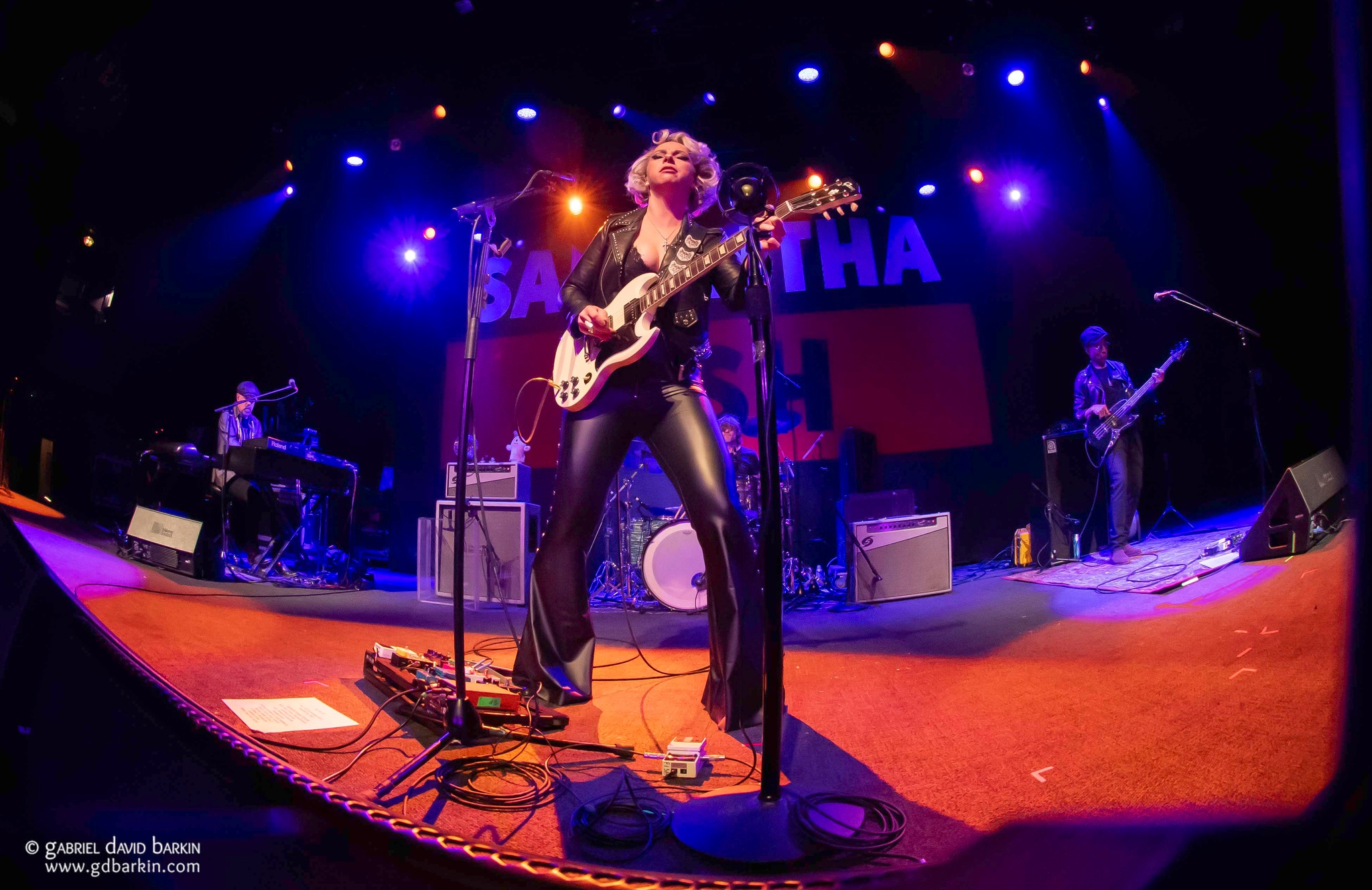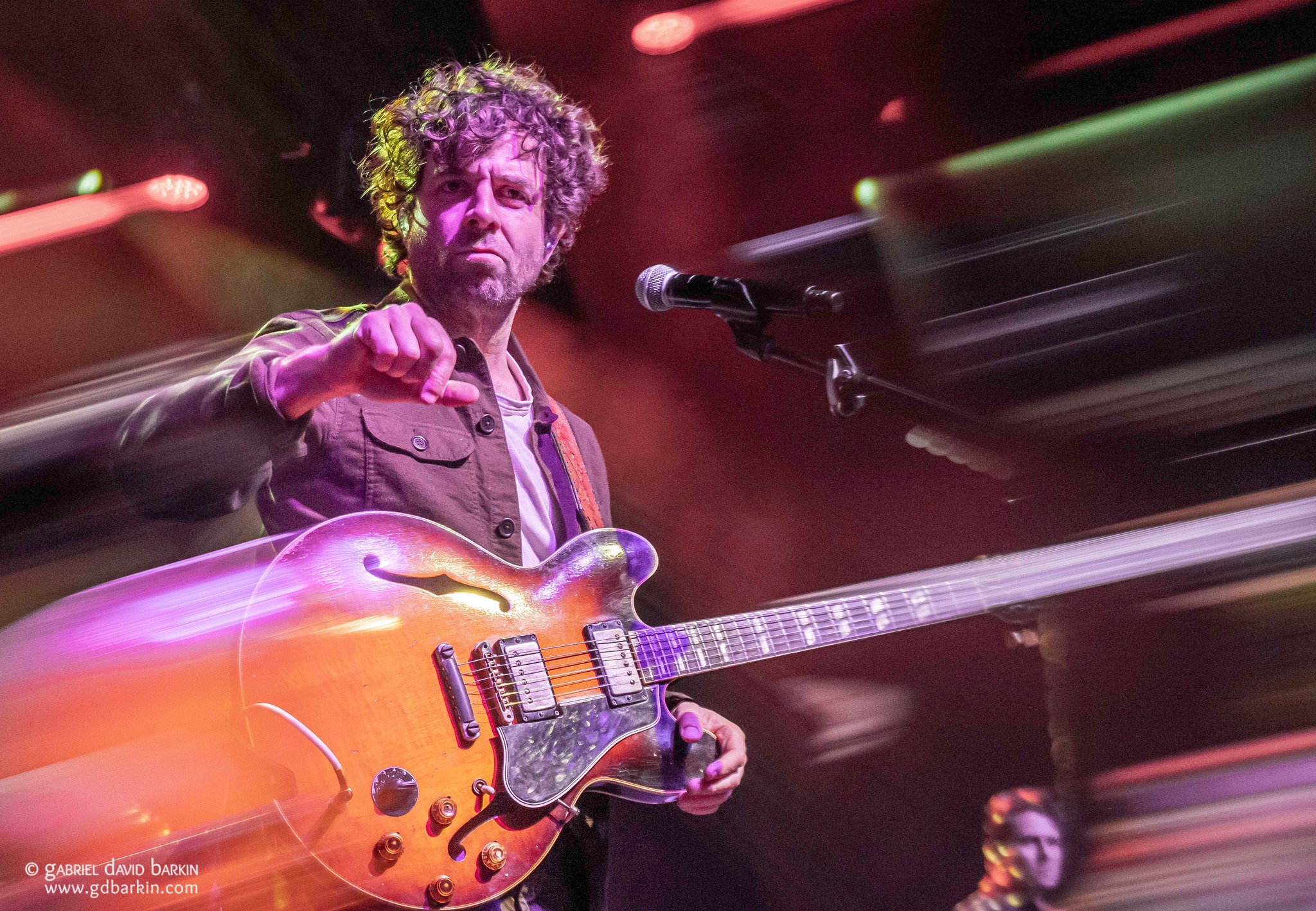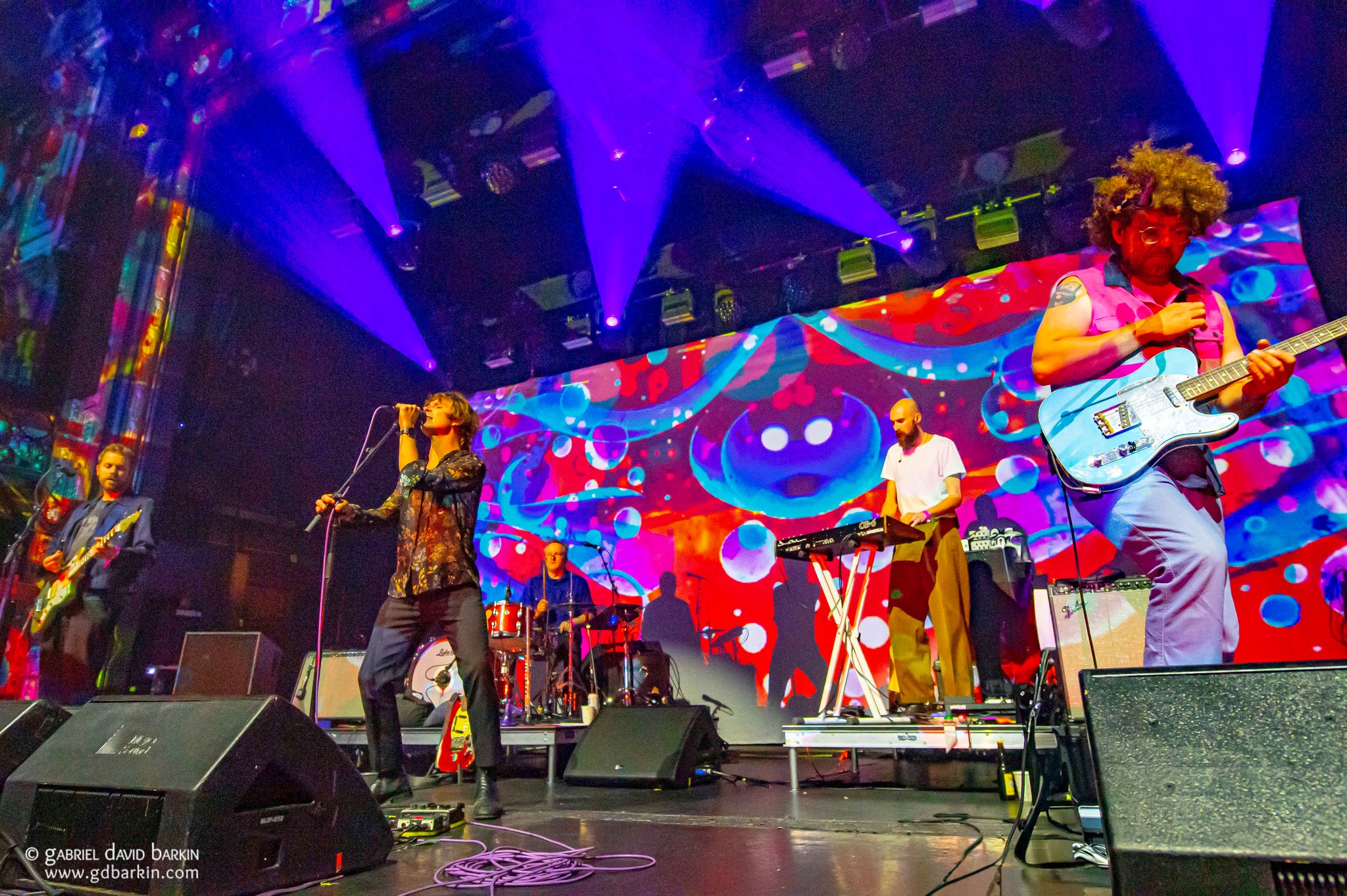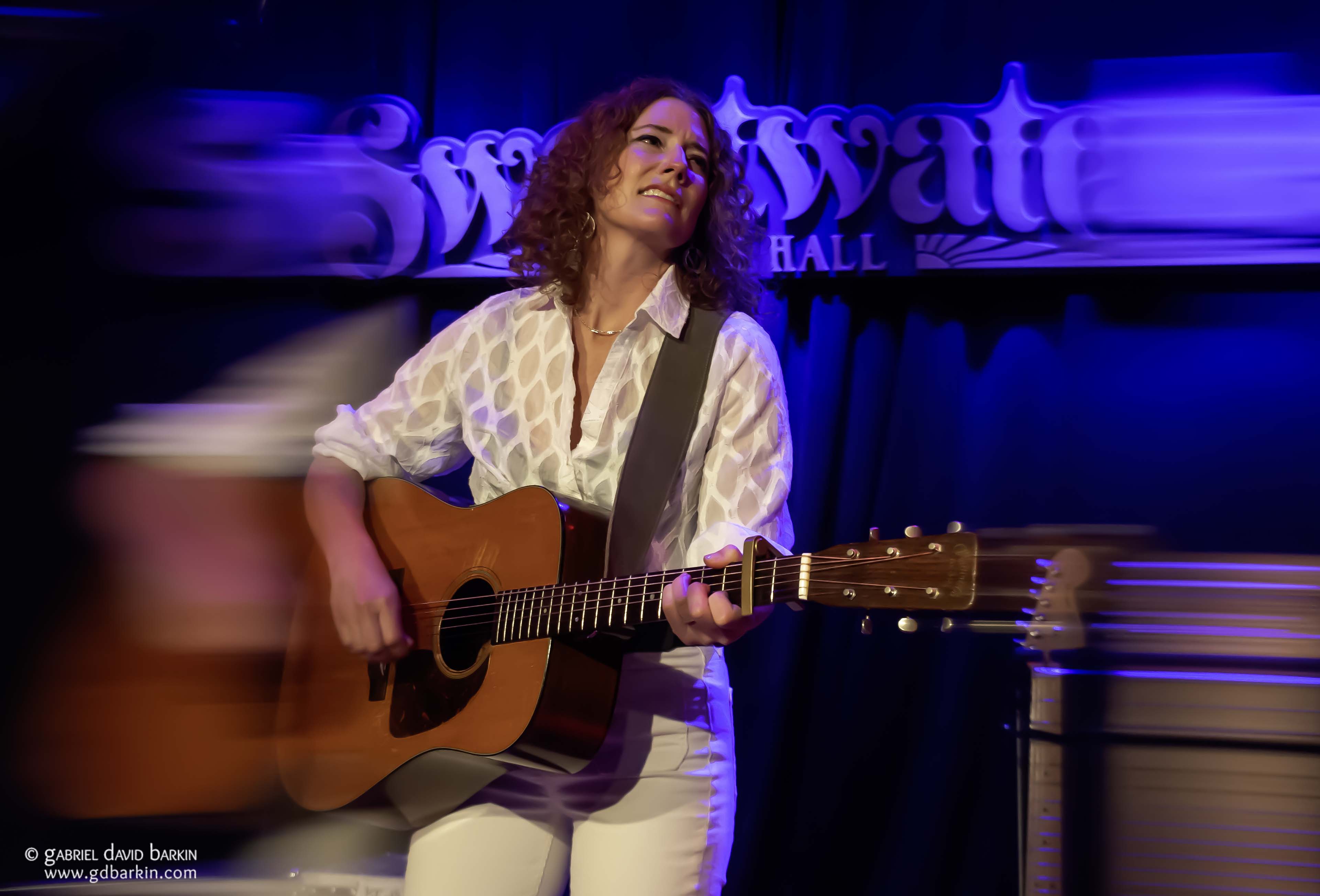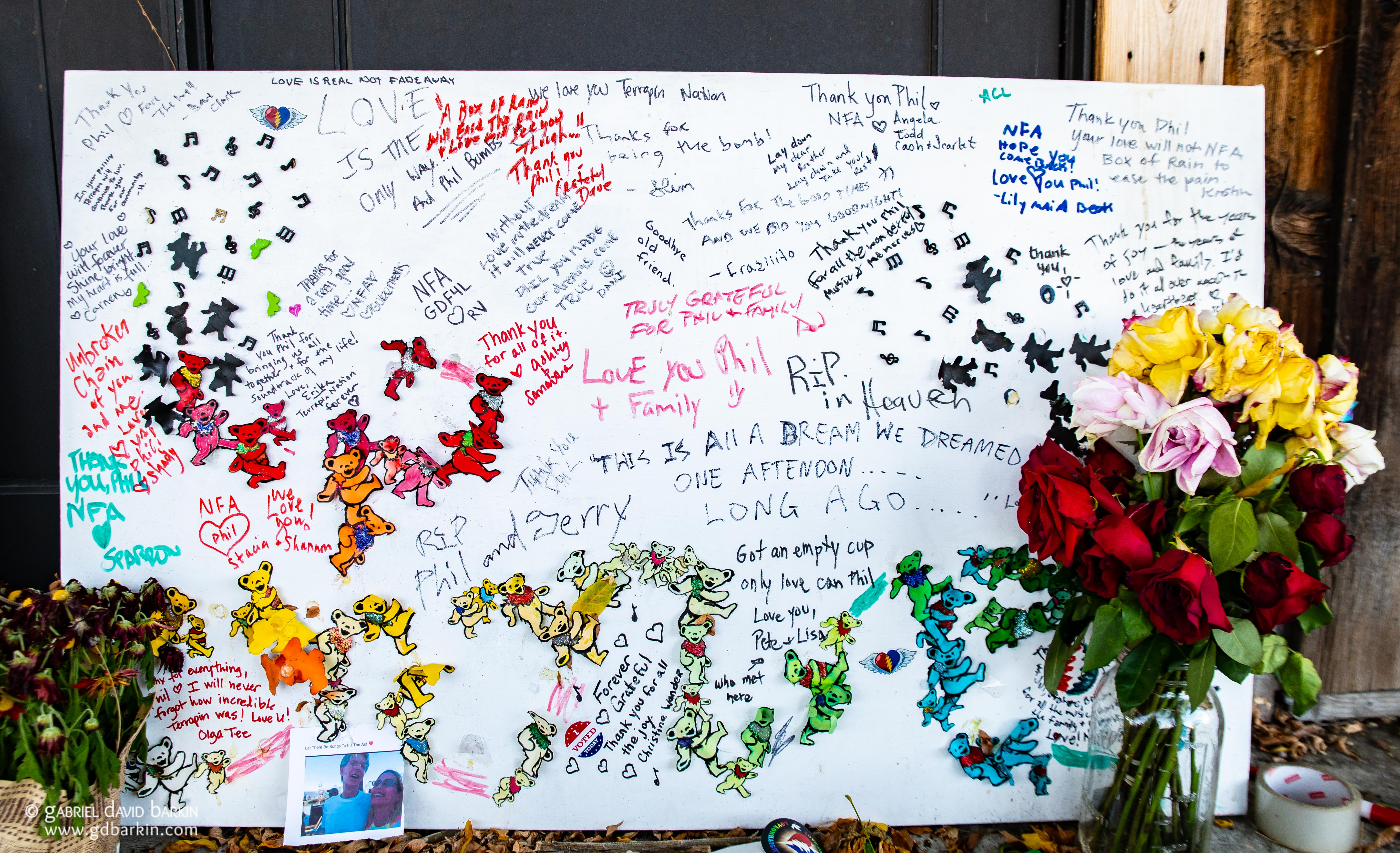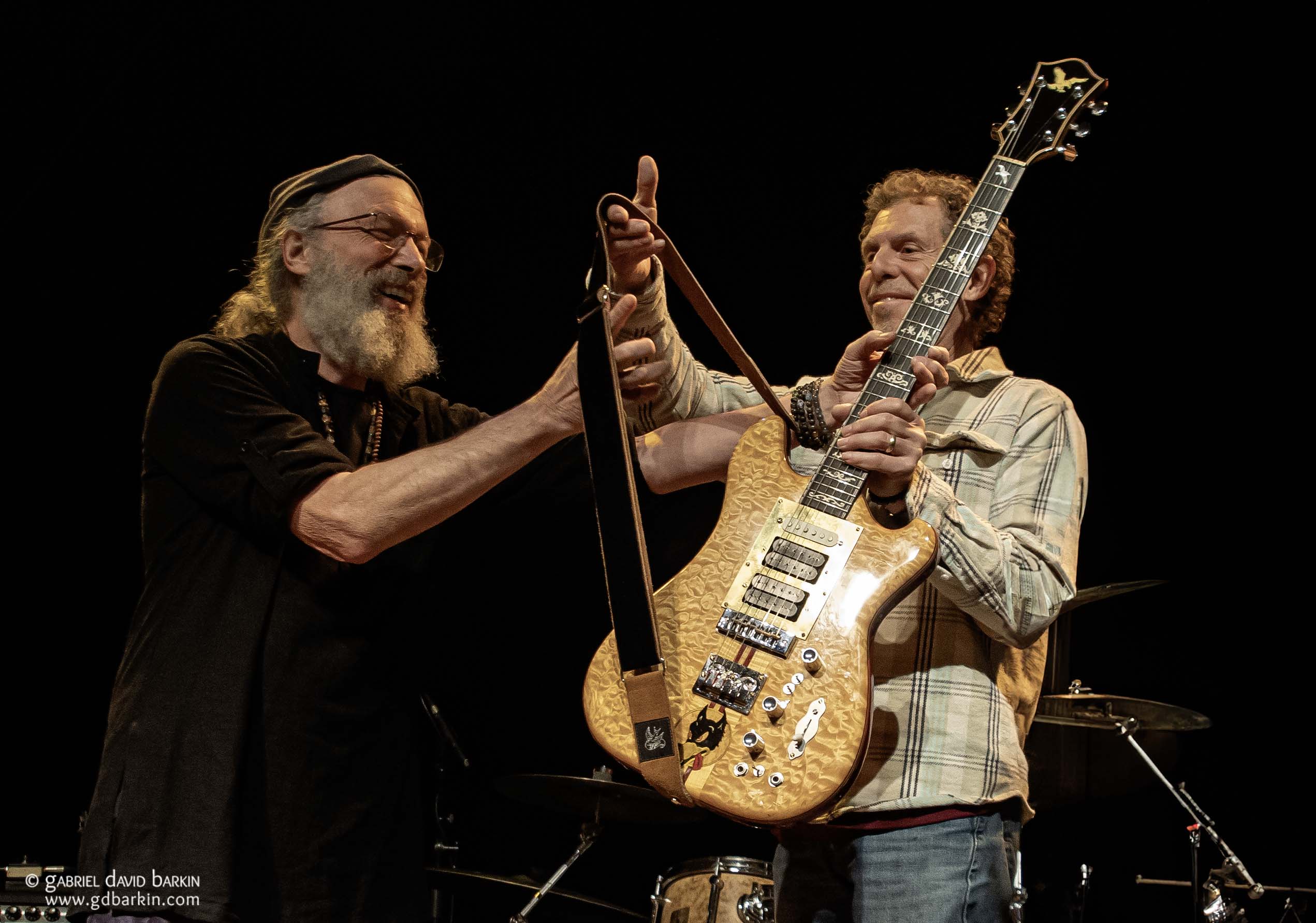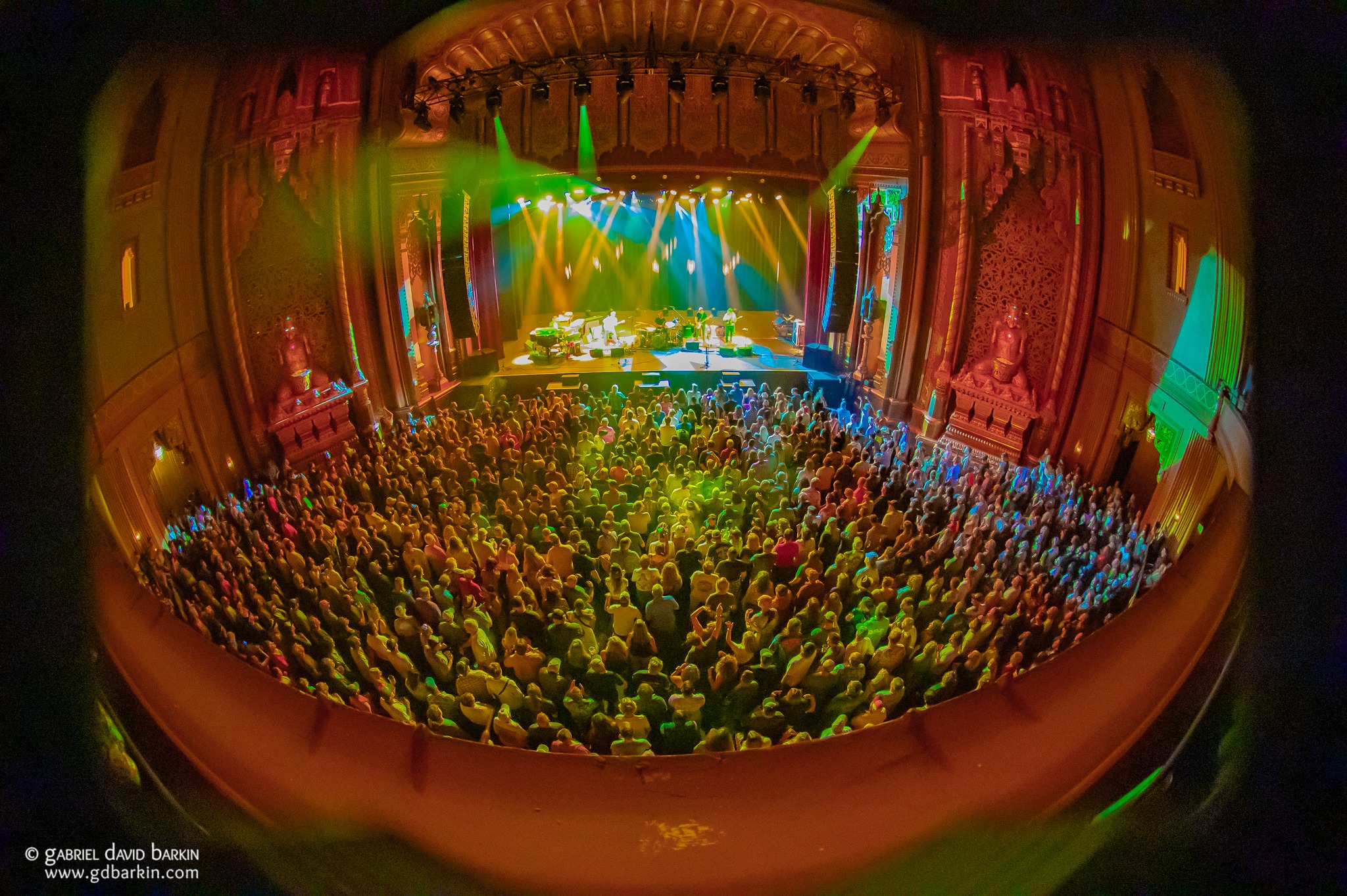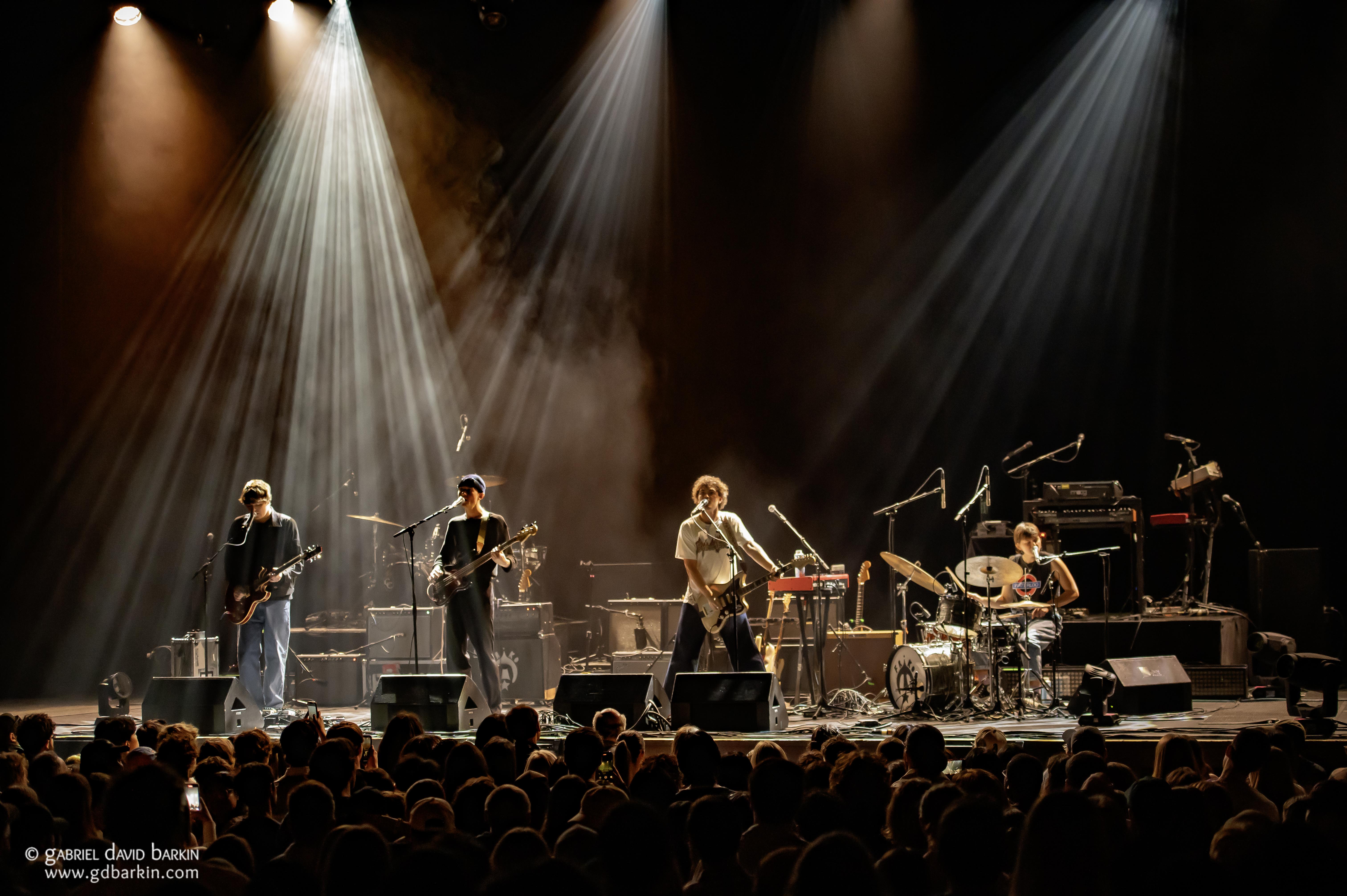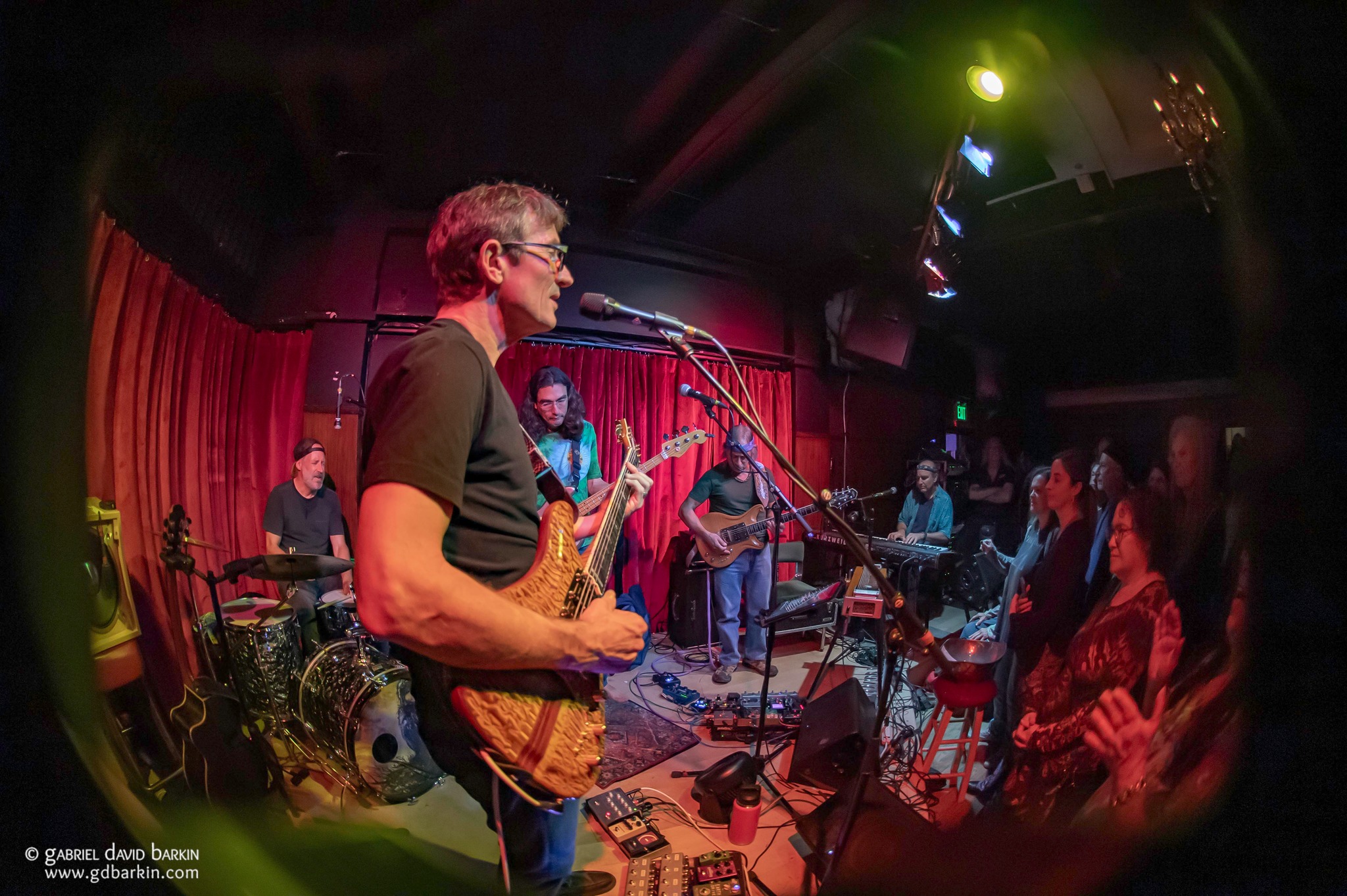Reggae legends Black Uhuru dropped some serious roots reggae beats at the Sweetwater Music Hall in Mill Valley, CA, on Friday night.
First, a bit of personal history: I got turned on to Black Uhuru by my college roomie, Robert, at U.C. Santa Cruz in the early Eighties. He had copies of the band’s seminal albums Sinsemilla and Red, and we smoked a lot of pot while grooving to tracks like “Puff She Puff” and “World is Africa.”
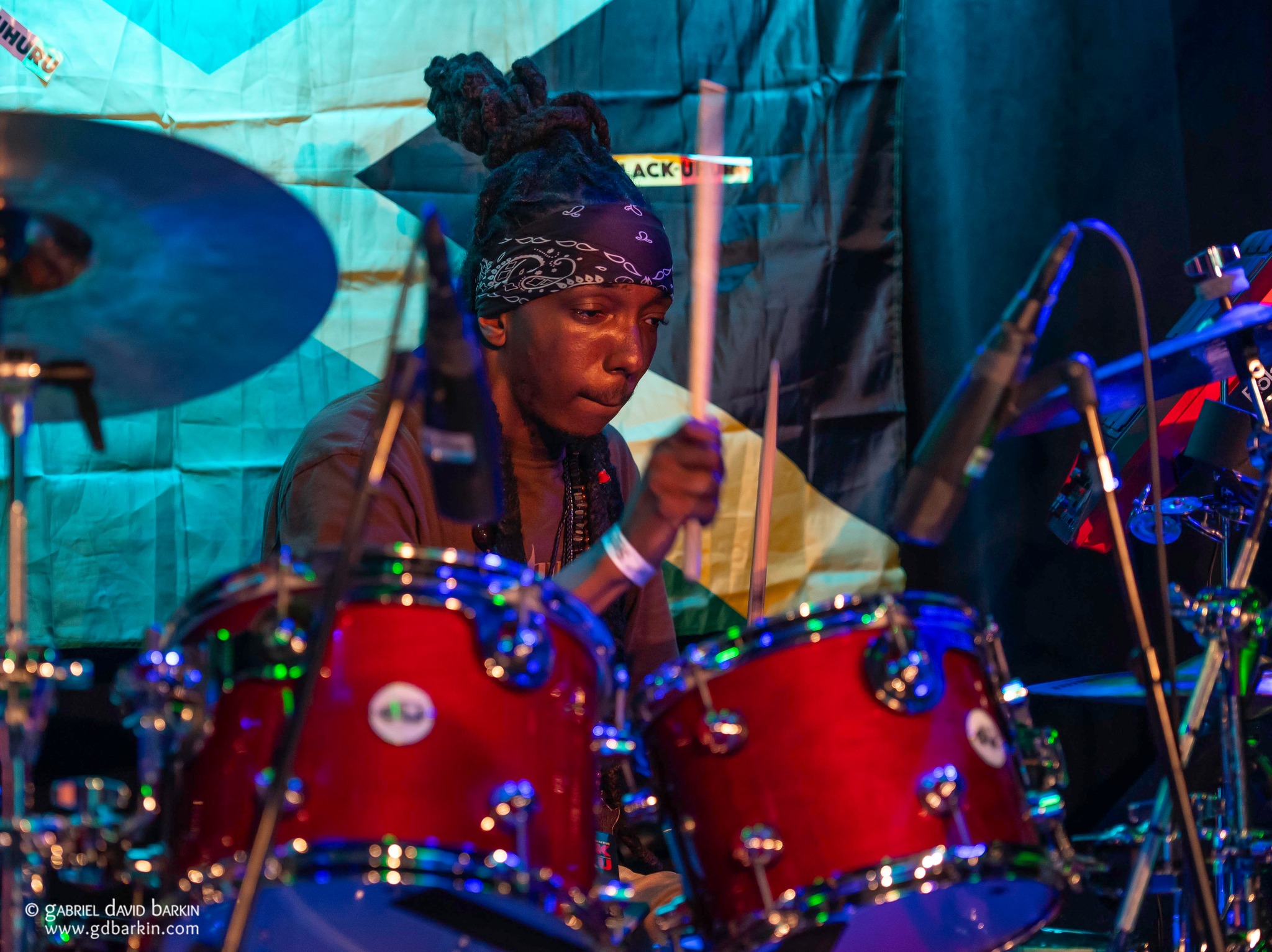
I saw Black Uhuru live for the first time when they played a gig in Santa Cruz in 1984 on a double bill with King Sunny Adé. Man, what a show! Drum and bass session maestros Sly Dunbar and Robbie Shakespeare were still recording and touring with the band, and the “classic” singer lineup of vocalists Derrick "Duckie" Simpson, Michael Rose, and Sandra "Puma" Jones were captivating and hypnotic performers. King Sunny Adé’s set was mighty high too. That show remains on my all-time list of best double bills.
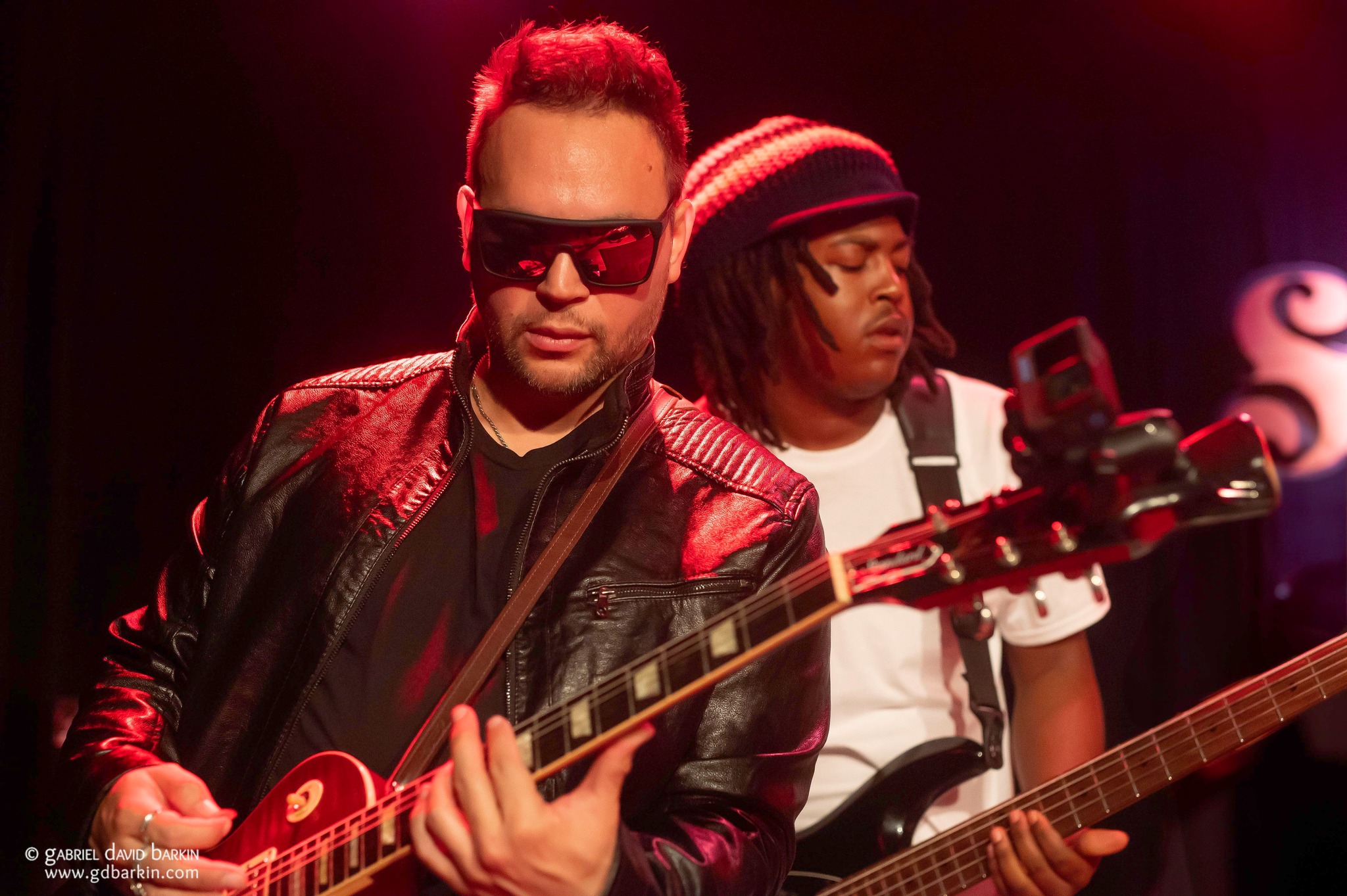
Fast forward just a few years: by 1986, Rose had left the band, and Sly and Robbie had moved on to other projects. I saw Black Uhuru for the second time on the “Sunsplash USA” tour with a bunch of other reggae acts, this time at the Circle Star Theater in San Carlos. The Circle Star was a sorta swanky place in days gone by, a regular tour stop for lounge acts like Frank Sinatra and Don Rickles. The main attraction of the Circle Star was that the performers played on a rotating stage in the center of the auditorium. By 1986, the paint was peeling, and the carpets and seats were musty. Black Uhuru too was at a point somewhat less magnificent than its golden era just a few years earlier. But they were still fun.
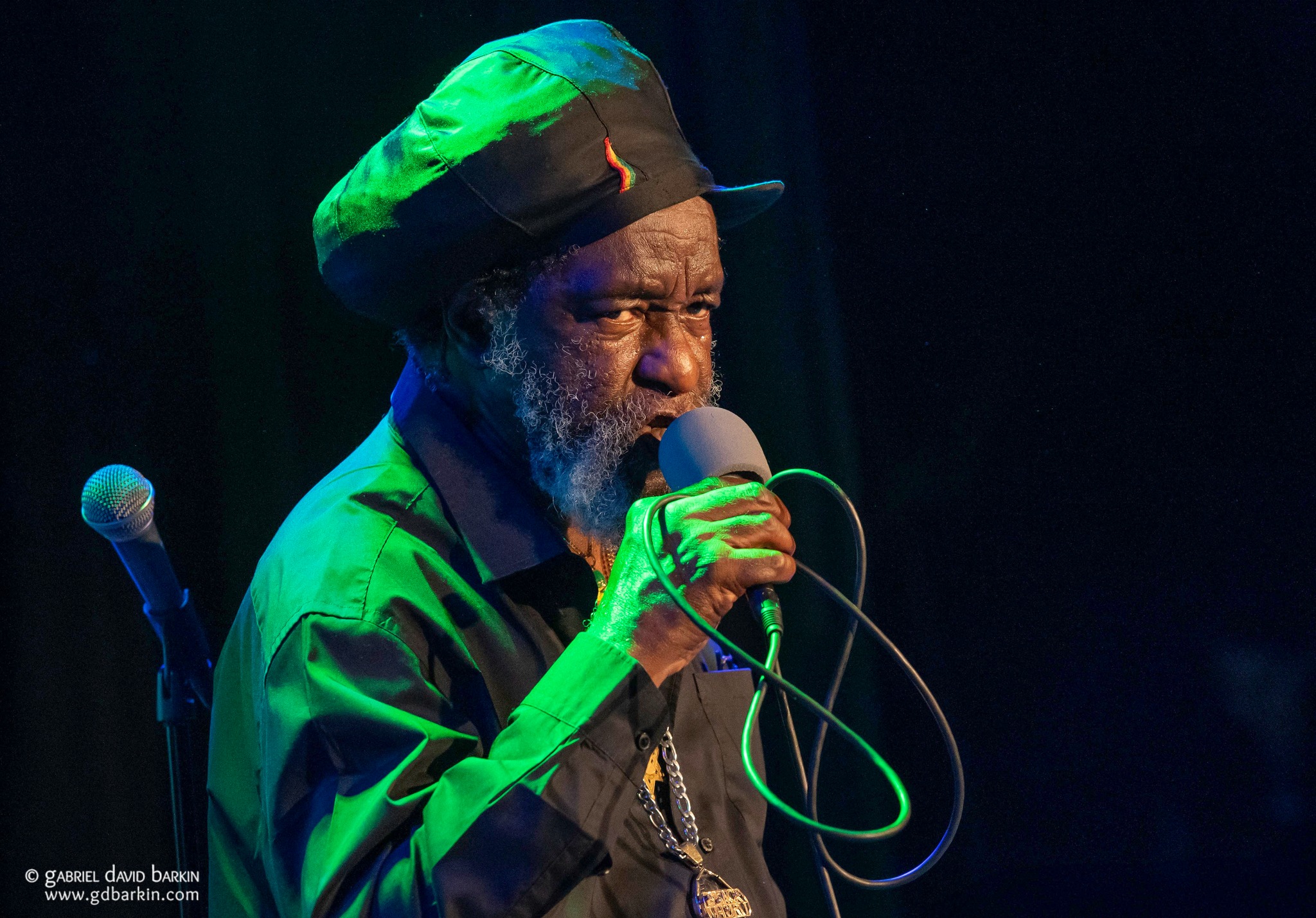
Fast forward one more time. It’s been 38 years since I’ve seen Black Uhuru. Of the core group I saw in 1984, only Simpson remains. Jones died in 1990. Rose came back only briefly in the early 2000s. Sly and Robbie haven’t been involved with Black Uhuru for decades, and Shakespeare died in 2021.
It was long overdue for me to check them out again.
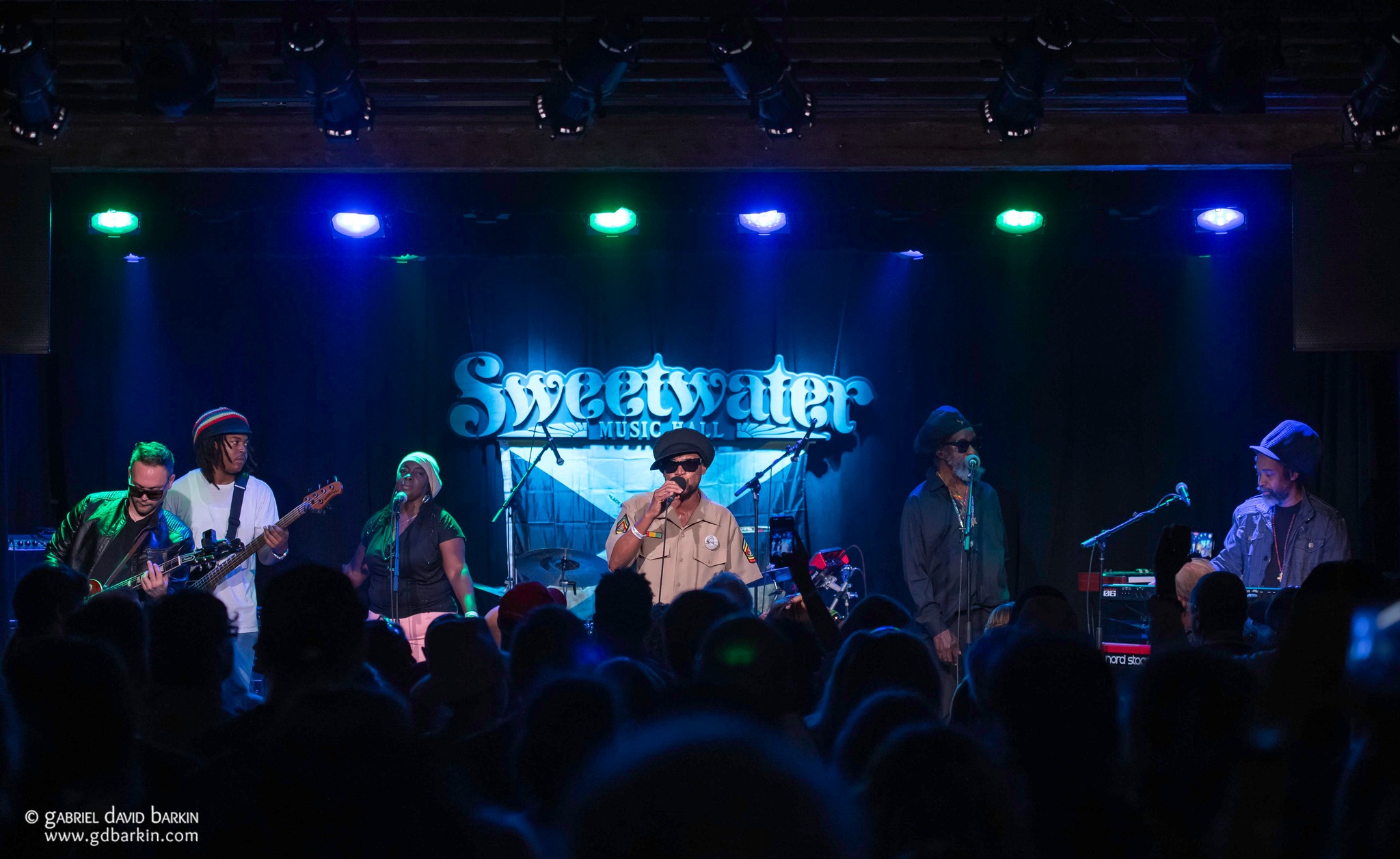
A sold-out crowd at the Sweetwater swayed to beats by DJ Sep while waiting for the headliners. Before Black Uhuru came on stage, the audience seemed to be a mix of old-school reggae fans who knew every word to “Guess Who's Coming to Dinner” and the usual Mill Valley “Hey, who’s playing at the Sweetwater tonight, let’s meet up!” regulars. But make no mistake, everyone was a big Black Uhuru fan by the end of the night.
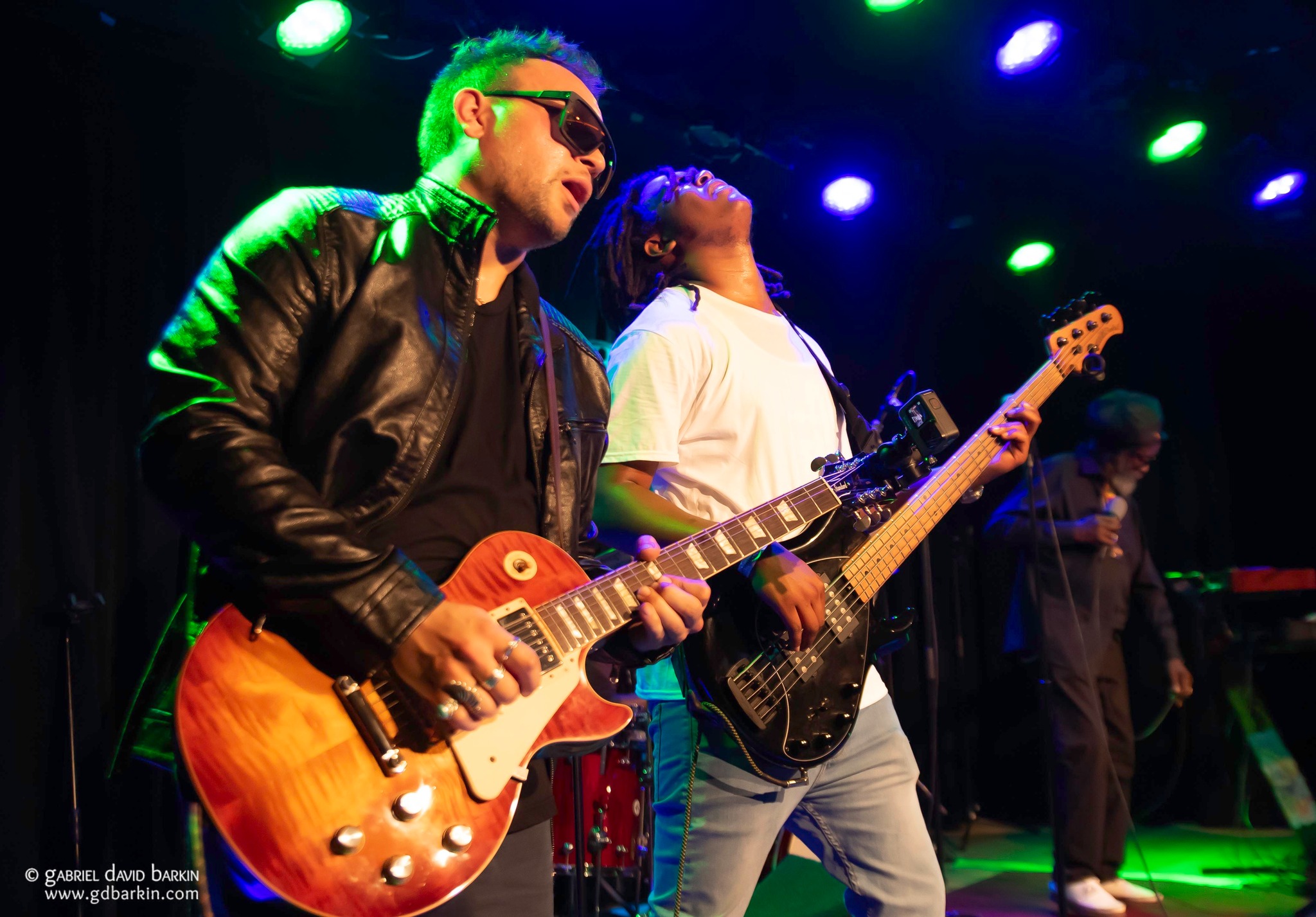
Black Uhuru’s songs (many of the early hits were written by Rose) are timeless and eternally poignant. But the magic in their performance decades later is a testament to Simpson, who has kept the vibe alive despite numerous personnel changes over the years. In the late Nineties, he created a new Black Uhuru lineup featuring Andrew Bees as a frontman on lead vocals. Bees has been on board since that time.
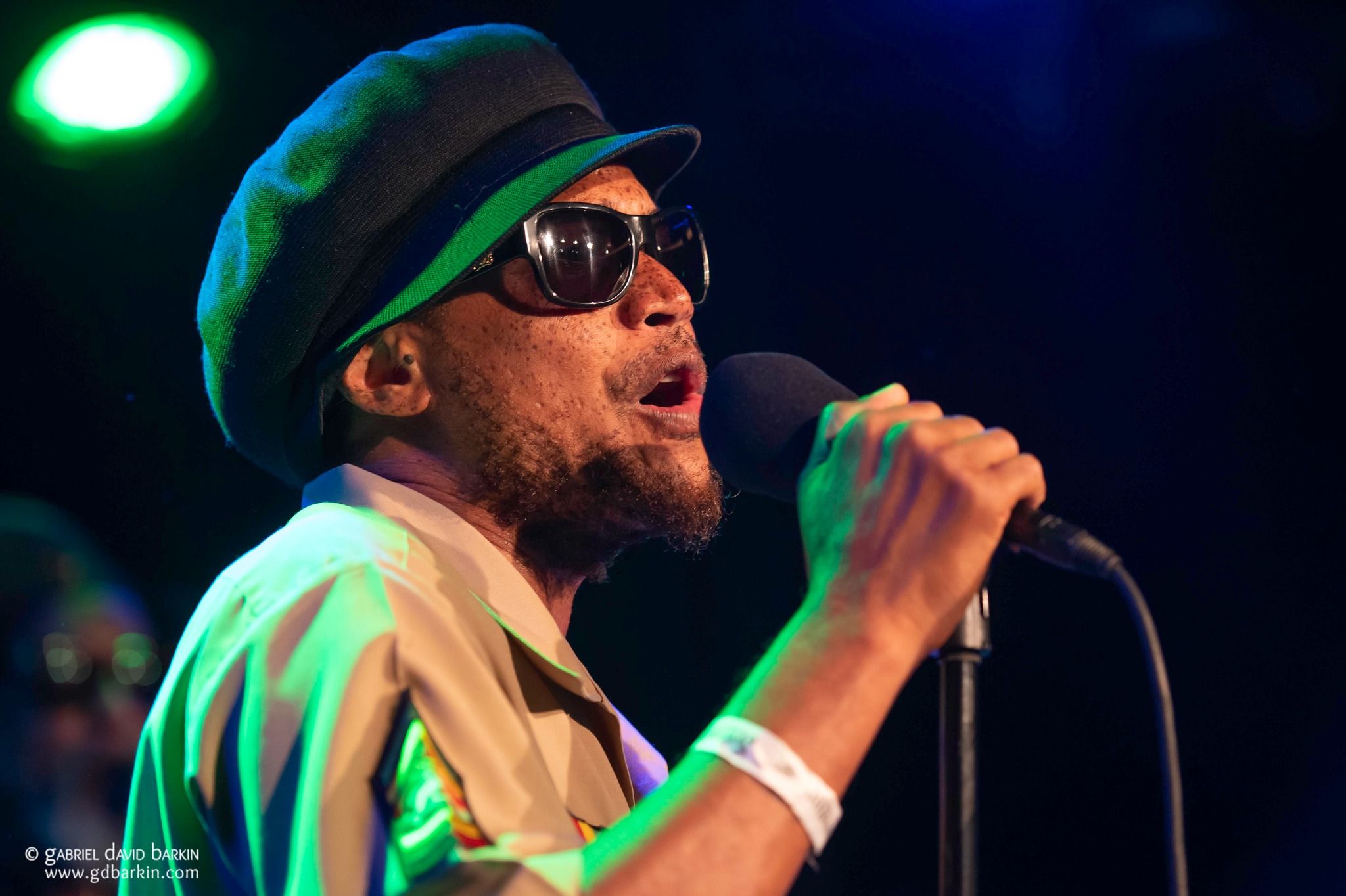
At the Sweetwater, Bees was energetic, and his voice was strong. If you closed your eyes, you might think it was Michael Rose singing the leads on songs from Black Uhuru’s early Eighties recordings, like the show opener “I Love King Selassie.” And yet, he “owns” the classic songs every bit as much as he does the newer cuts recorded during his tenure. His delivery is authentic at every moment.
True to form and genre, Bees often punctuated his performance by shouting “roots!” and “Rastafari!” He engaged the audience with call-and-response singalongs. He roamed the stage, bouncing and swaying his arms. But most of all, he sang his heart out. Versions of “General Penitentiary” and “World is Africa” were particularly lively, spiritual, and enthralling.
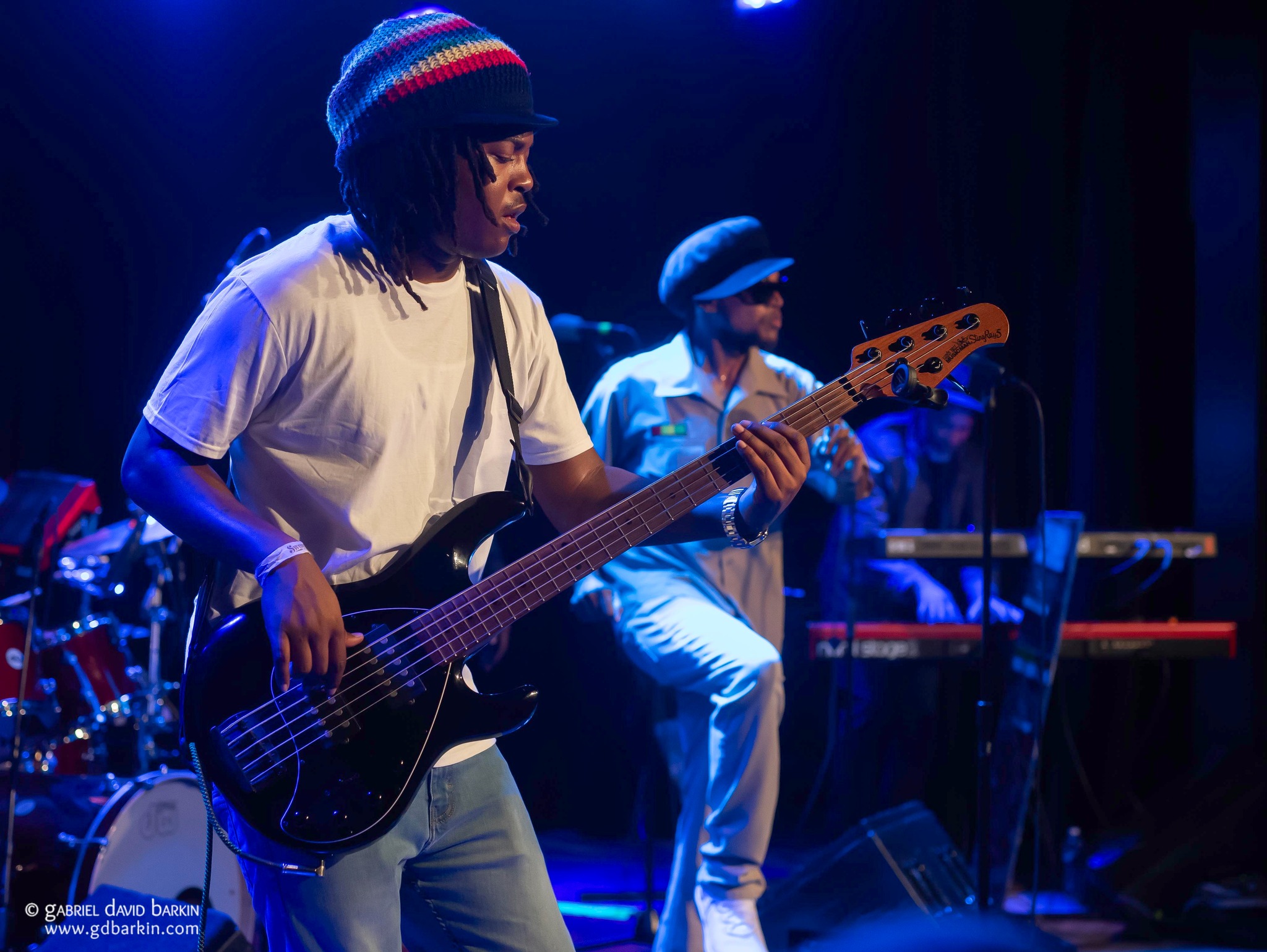
Some of the band members (on bass and drums in particular) might not even have been born yet when Black Uhuru recorded their biggest hits, and certainly not back in 1972 when Simpson and some mates formed the first version of the band (then just called “Uhuru”) in the Waterhouse district of Kingston, Jamaica. Even so, they delivered the goods. The bass drove the beat, the drums were tight, and there were numerous guitar and keyboard solos all night long.
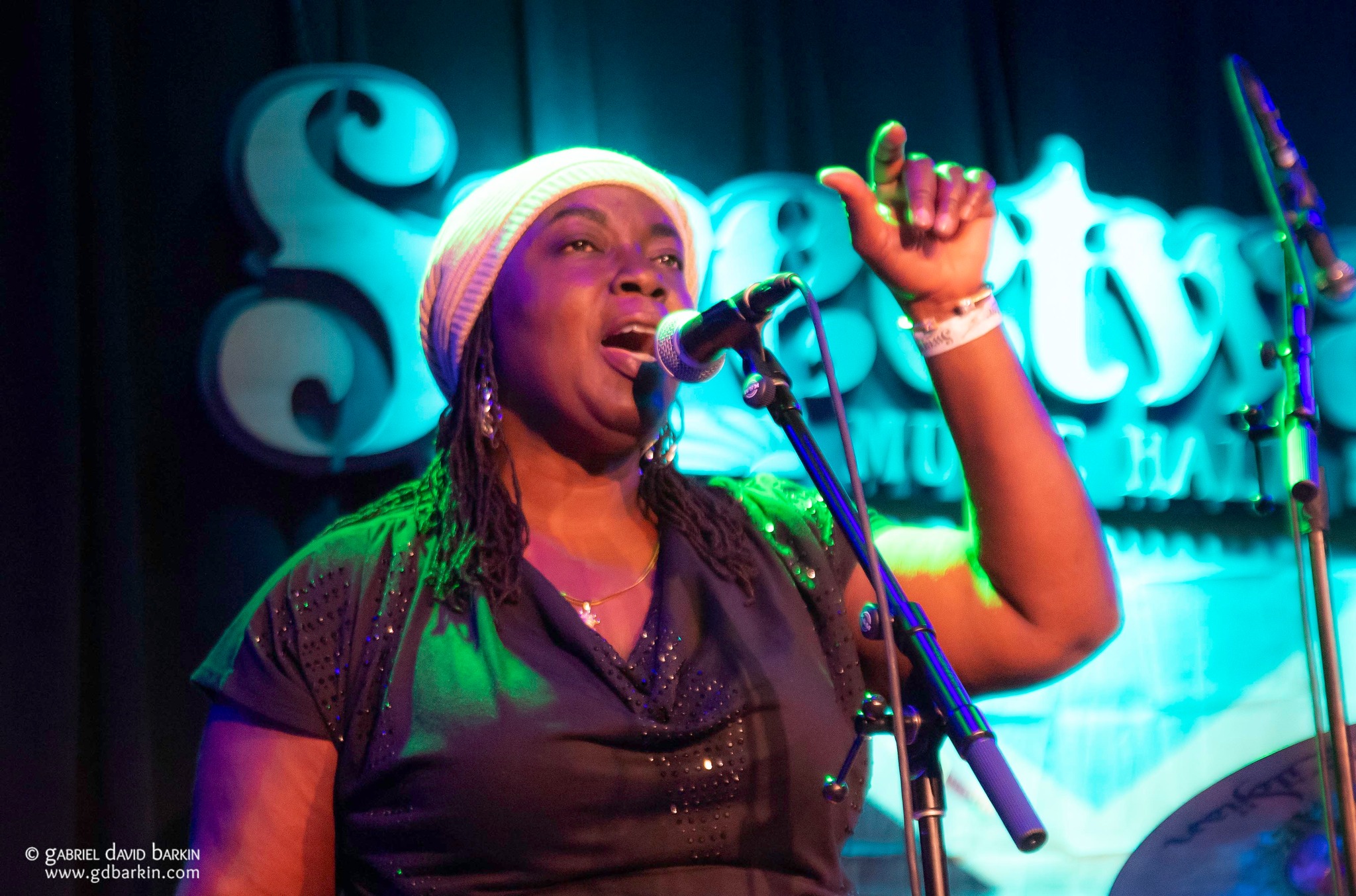
It's fair to say that Black Uhuru puts the “jam” in “Jamaica.”
About midway through the two-hour set, Bees took a breather, and Simpson (who had been singing backing vocals toward the back of the stage) took the lead on vocals. While his voice was never as strong as Rose’s or Bees’s, his charisma more than made up for it. Oddly, he stayed toward the back of the stage even while singing leads. It was only after four or five songs that he ventured toward the front.
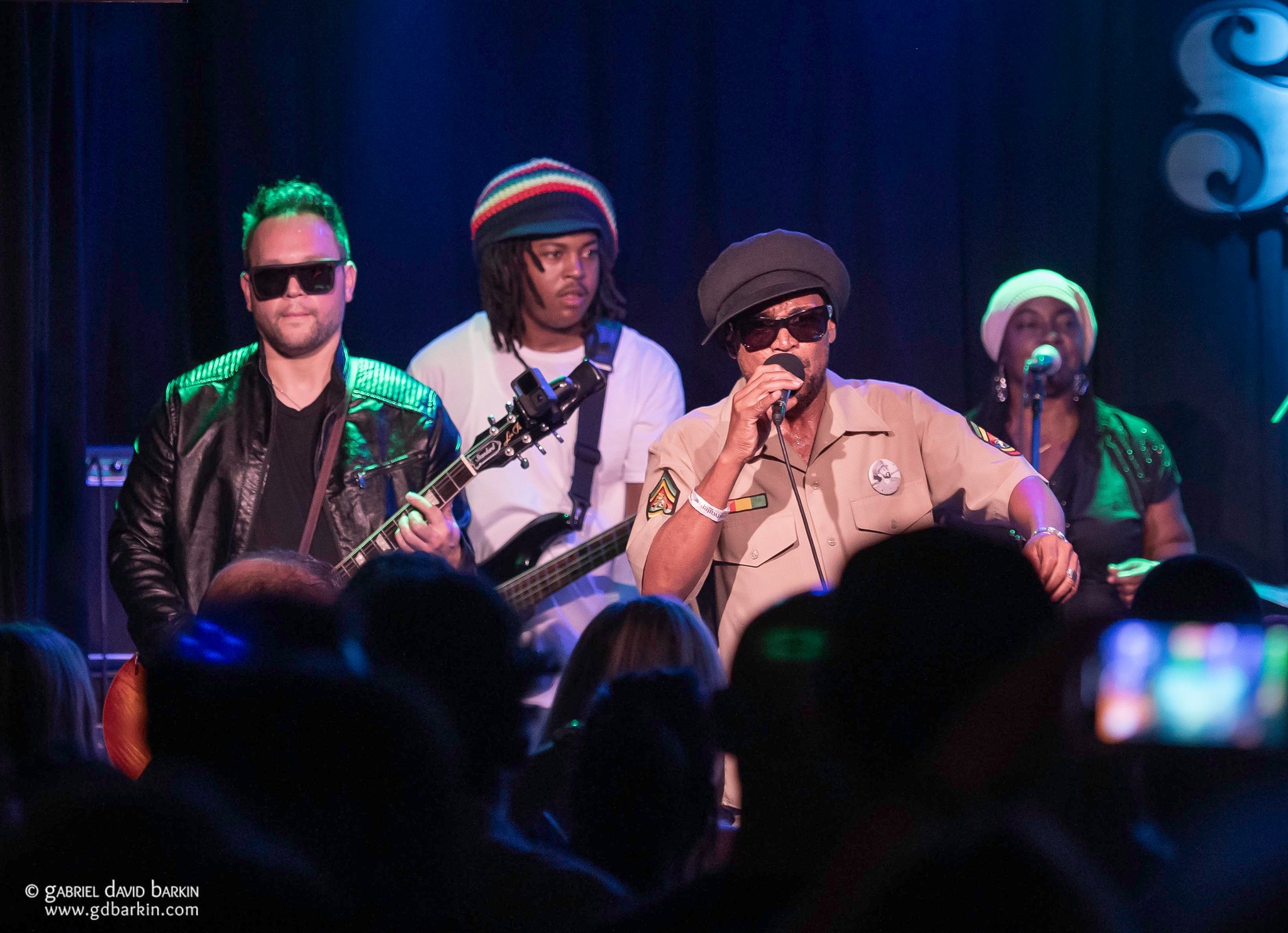
Dylan Seid, the singer and founder of NorCal reggae jamband Dylan's Dharma, came on stage to sing two songs he recorded with Black Uhuru on their most recent album, 2022’s New Day, including “Jamaica to Here.”
Then Bees returned for the last few songs and the three-song encore. If “Guess Who's Coming to Dinner” and “Solidarity” weren’t enough for the enthralled audience, “Sinsemilla” took the cake. A few joints started circulating in the audience to give life to the lyrics: “Pass it, pass it, all over I and I.”
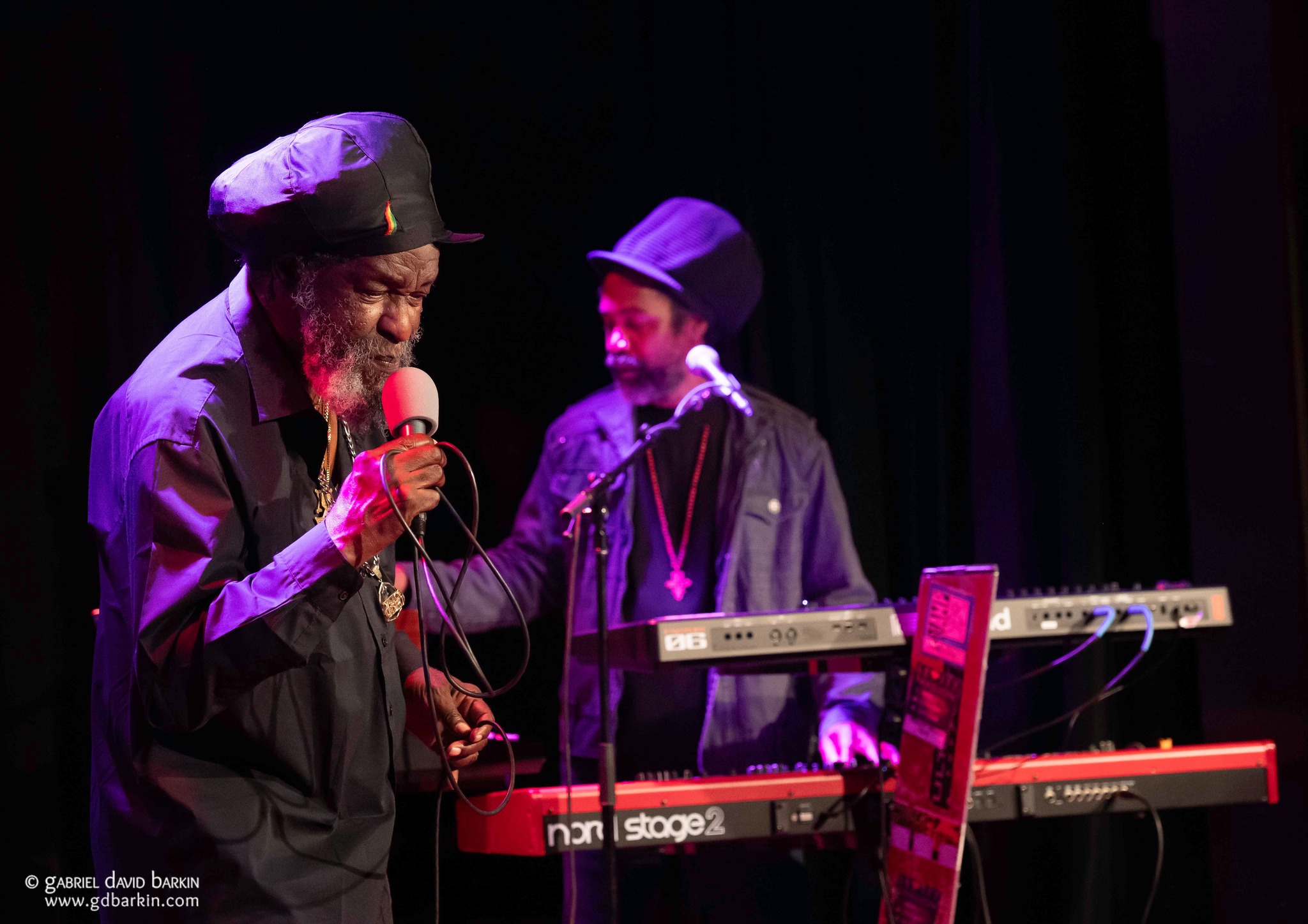
At the end of the night, I wondered why I’d waited 38 years to see Black Uhuru again!





